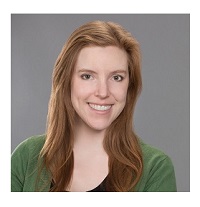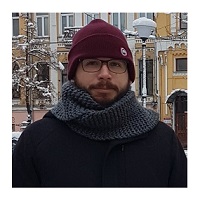Jan 21, 2019 | by The SEEP Network
This webinar explored the legal and structural barriers to refugees’ entry into markets in two contexts. Oxfam explored findings from an emergency livelihoods study for returnees in Afghanistan and the Norwegian Refugee Council shared lessons and insights from their work supporting refugees to establish businesses in Kakuma, Kenya.
Supporting Refugee Businesses In Kakuma Camp, Kenya
One of the largest refugee camps in the world, Kakuma camp, and the nearby Kalobeyei settlement are home to close to 186,000 refugees, nearly 40 percent of the total number of registered refugees living in Kenya. A sizeable number of refugees (estimated at between 12 to 18 percent of Kakuma’s population) run informal businesses there, providing goods and services to other refugees, as well as the local host community. However, opportunities are limited by restrictive laws and practices around refugee movement and work rights. Under Kenyan law, all refugees are required to live in and remain within one of two designated refugee camps – Kakuma and Dadaab – both located in isolated and marginalized areas. Based on experiences in Kakuma, we:
Emergency Livelihoods for Returnees in Afghanistan
Afghanistan is one of the world’s most complex and intractable humanitarian crises, with annual figures on forced displacement and return of Afghans from regional neighbors now exceeding 1.26 million persons for 2018. The barriers that internally displaced people, returnees, and host communities face to market and economic participation are severe and poorly addressed by our current toolkit of emergency livelihoods and market-based approaches. So many of the barriers to the economic success of the vulnerable in these regions of Afghanistan are a function of social capital, market governance, gender and insecurity in a protracted crisis with no single discernible ‘shock’ or ‘entry point’ against which to apply typical tools for response analysis, design and implementation. The webinar:
 George William Onyore, Norwegian Refugee Council
George William Onyore, Norwegian Refugee Council
George is an advocate of the high court of Kenya by profession with a specialization on refugee law, human rights, and constitutional law. He previously practiced law at Muthaura Mugambi Ayugi & Njonjo (MMAN) advocates and served as a pro bono advocate for Coalition on Violence Against Women (COVAW) before joining HIAS Kenya. In 2017, he joined NRC in the role of project coordinator for Information Counselling and Legal Assistance. George has over 6 years’ experience working in the humanitarian field.
 Anna Crowe, Harvard Law School
Anna Crowe, Harvard Law School
Anna is a Clinical Instructor and Lecturer on Law at the Human Rights Program at Harvard Law School. Her work focuses on refugee rights, particularly the right to a legal identity and freedom of movement. She also works in the field of humanitarian disarmament and has undertaken research and advocacy projects on the right to privacy in a variety of comparative contexts.”
 Stuart Kent, Oxfam
Stuart Kent, Oxfam
Stuart Kent is a Humanitarian Practitioner with a technical background in Emergency Food Security, Livelihoods & Markets who has worked with Oxfam’s Global Humanitarian Team in Africa, Asia-Pacific and the Middle East. His work includes market-based livelihoods programme design and evaluation in protracted conflicts with high levels of forced displacement, including Afghanistan. Currently, he leads a consortium of national and international agencies in Ukraine on behalf of People in Need.
This webinar is hosted by The SEEP Network's Markets in Crises Community of Practice.
Categories: Resilient Markets Webinar Resilient Markets Webinar WebinarsBlogs

1621 North Kent Street, Ste 900,
Arlington, VA, 22209
P 202.534.1400
F 703.276.1433
Website Photos: © mari matsuri
